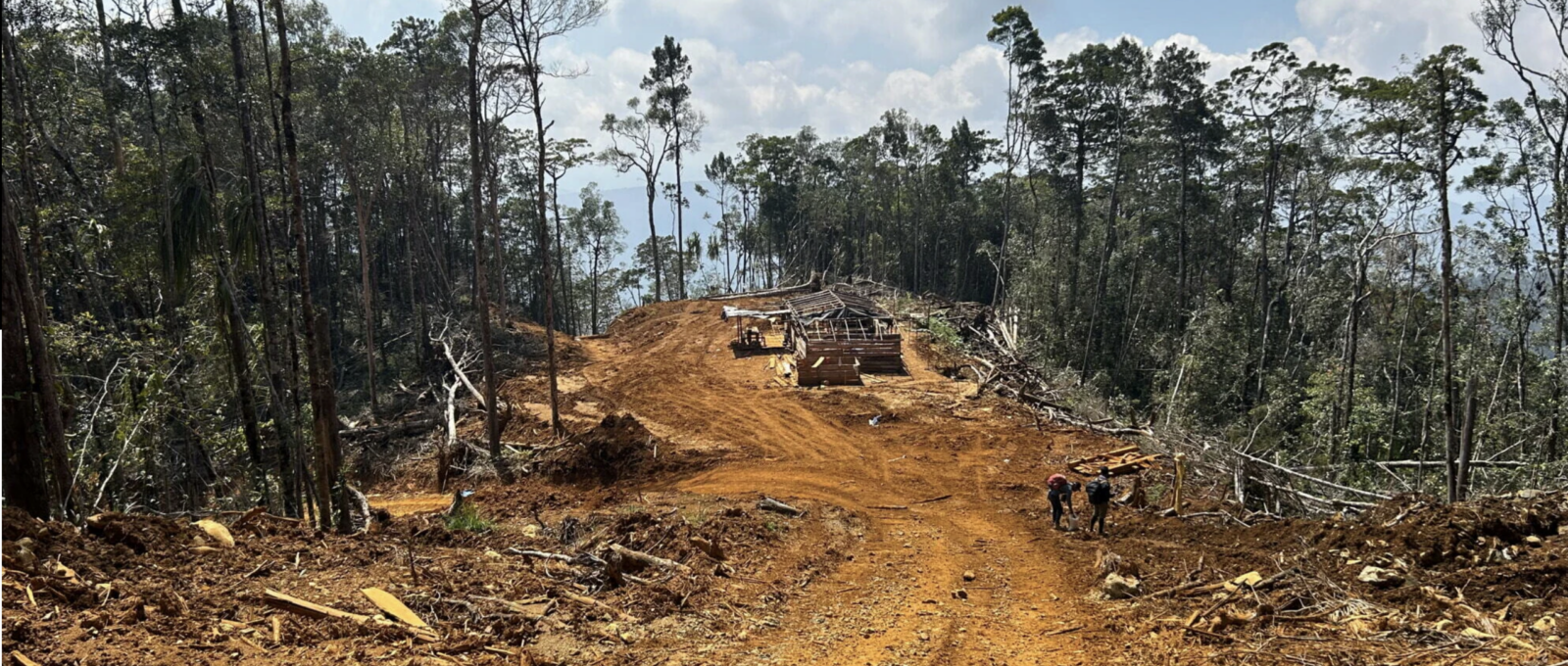One of the biggest challenges in our global fight against climate change is that energy transition requires mining for battery minerals, which disproportionately impacts tropical rainforests, which protect the climate. Deforestation causes about 10% of climate change, and forest loss is on the rise because of growing demand for battery minerals.
According to a 2023 World Wildlife Fund report, 62% of deforestation related to mining occurred in tropical and subtropical rainforests, despite these areas only having 29% of the world’s mining areas. Deforestation linked to mining looks set to increase as the energy transition accelerates, without significant action from automakers, battery manufacturers, policymakers and investors to stop it.
Rainforest Foundation Norway and AidEnvironment released a report last week called “Short circuits: Exploring the broken links of mineral supply chain policies in the electric vehicle industry“ which looked, for the first time, at the efforts of companies in the EV supply chain to mitigate deforestation impacts. Their report examined the commitments, policies and practices of major automakers and battery manufacturers in three main areas:
- Deforestation and biodiversity;
- Overall human rights and environmental due diligence for their mineral supply chains; and
- Ensuring respect for the rights of Indigenous peoples in supply chains.
The report found a disturbing lack of commitments on deforestation in mineral supply chains across EV battery producers and automakers alike. It identified ‘broken links’ between automakers’ and battery manufacturers’ policies, finding that the automakers that do have deforestation commitments tend to source batteries from battery manufacturers that do not have commitments around deforestation or biodiversity, undermining the automakers’ commitments.
Overall, Tesla and Mercedes were the top scorers in the Rainforest Foundation Norway and AidEnvironment’s report, similar to the annual Lead the Charge leaderboard wherein Tesla and Mercedes scored third and second, respectively. These higher scores are not only a reflection of these companies’ above average performance on biodiversity and deforestation criteria specifically, but also their above average performance when it comes to Indigenous rights and mineral due diligence.
Ford, the current top scorer in the Lead the Charge leaderboard, performed poorly in Rainforest Foundation Norway and AidEnvironment’s evaluation, coming in eighth place. Ford’s strong performance on mineral due diligence overall was not enough to bring them higher up the rankings, due to their lack of policies, commitments and action on deforestation, Indigenous rights and biodiversity. When the evaluation was carried out, the company had no policy or commitment to deforestation or biodiversity at all. Ford also scored very low – only 7% – on Indigenous rights in the leaderboard. It is encouraging to see that Ford has started to address this gap in their latest sustainability report. Hopefully Ford will also update their policies to address the gap with regards deforestation and biodiversity.
Among battery makers studied, Samsung SDI is clearly in the lead. They scored points by:
- Incorporating Free, Prior and Informed Consent from impacted Indigenous Peoples as a requirement in their supplier code of conduct;
- Mentioning the UN Declaration on the Rights of Indigenous Peoples in their supplier code of conduct;
- Being the only battery maker studied with a deforestation commitment including policies that emphasise preventing deforestation and/or ecosystem conversion in accordance with applicable laws (i.e., illegal deforestation)
- Providing a mineral-specific or supply chain-specific grievance mechanism for violations of their policies.
Another interesting finding in the report is the relatively strong performance of two Chinese battery makers: Farasis Energy and, in particular, CATL. Both of these companies outperformed several automakers (Nissan, Geely and BYD) and also several battery competitors – not only in China but also in South Korea, Japan, and Europe. The evaluation found that these companies had strong commitments on responsible mineral sourcing, biodiversity and Indigenous Peoples’ rights, including by introducing requirements for their suppliers to respect their Free, Prior and Informed Consent. Both companies also scored relatively well against the implementation and management criteria, but their overall scores were brought down by the disclosure indicators. Nonetheless, this promising progress lays the foundations for these companies to further improve their performance and become industry leaders on these issues.
“The EV industry’s evident lack of control in the supply chain marks a stark contrast to its profits. Policy makers, investors, and consumers place a lot of trust in the companies that fuel the green transition. The company owners must understand their responsibility and take it seriously,” said Toerris Jaeger, executive director of Rainforest Foundation Norway.
Deforestation and biodiversity outcomes are crucial to keeping climate change under 1.5 degrees of warming. That’s why Lead the Charge will be incorporating criteria like those Rainforest Foundation Norway and AidEnvironment used in their report into our annual leaderboard, ensuring that our rankings reflect efforts by automakers to protect forests and biodiversity. Automakers should move quickly to ensure that their supply chains are free from deforestation and biodiversity impacts, given the high visibility of these issues among consumers – particularly EV consumers.
